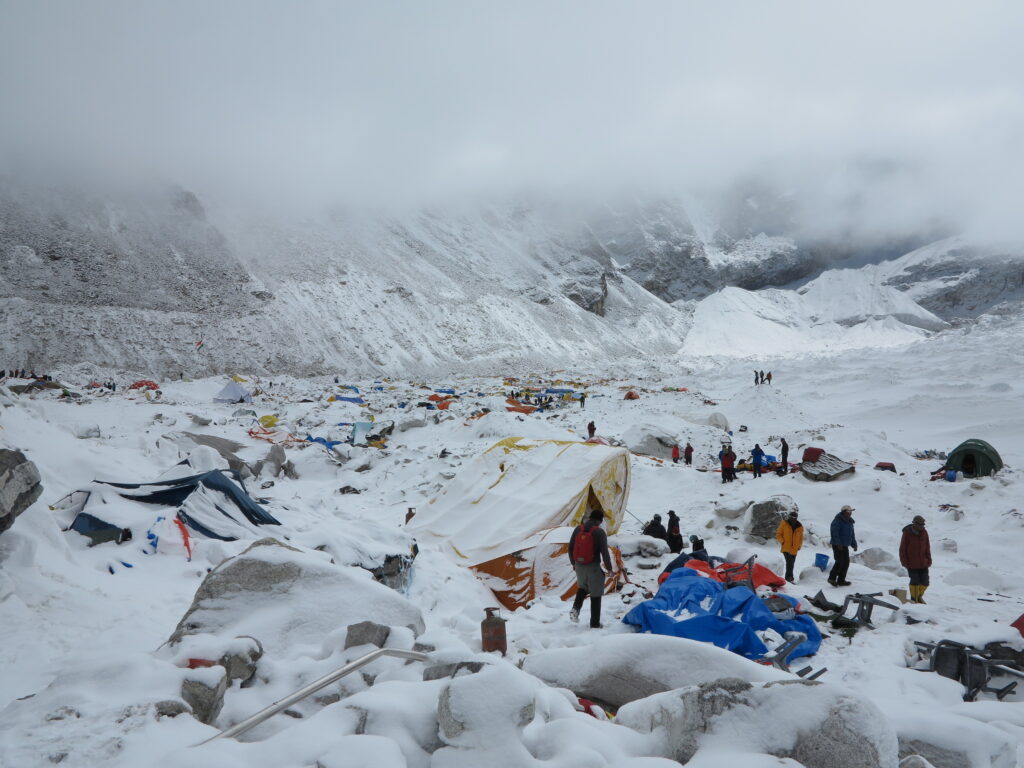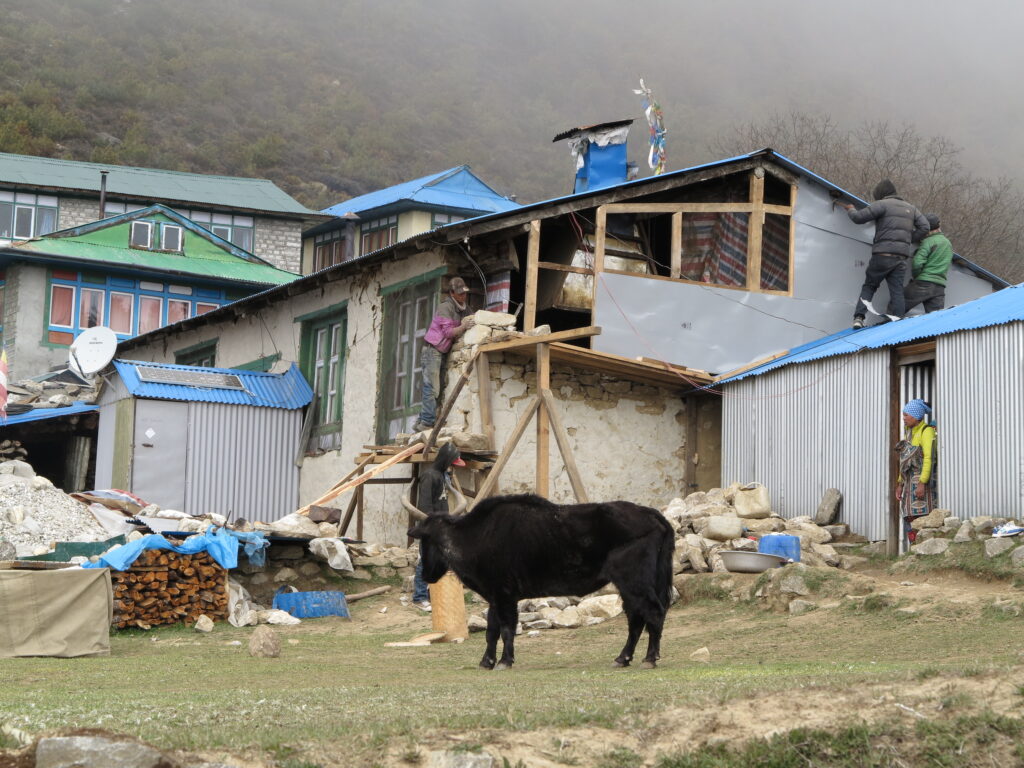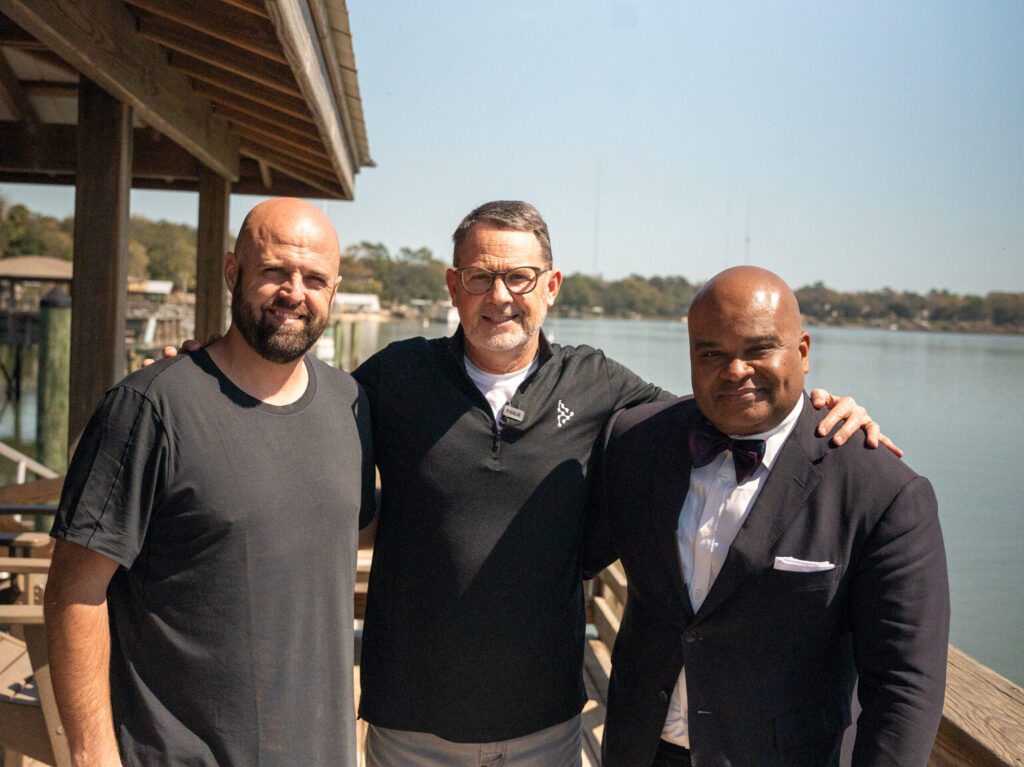Mount Everest, Church Planting, and Climbing Together
For Tiepeng Lyu, a Chinese church planter with the South Carolina Baptist Convention, the road to ministry was anything but ordinary.
His experiences, from attempting to summit Mount Everest to facing unexpected challenges, ultimately led him to plant a church in Columbia, South Carolina. And while summiting Everest was once his dream, Lyu has come to realize that church planting is a far greater challenge.
A Life of Climbing
Born in a mountainous region of China near North Korea, Lyu developed a love for hiking at an early age. His passion led him to join the Mountaineering Association during university, and over the next three decades, he honed his skills as a climber. Among the world’s great peaks, Everest stood as his ultimate goal.
In 1992, Lyu made his first attempt to climb Mount Everest from Tibet, but the expedition ended in failure. Undeterred, he set his sights on returning. It took 20 years before he had another opportunity, and in 2012, after three years of rigorous training, praying, and raising the $40,000 necessary for the climb, he set out once more—this time from Nepal.

Near-Death on Everest
Reaching Everest’s base camp was an awe-inspiring experience for Lyu. The two-week trek was filled with breathtaking landscapes, interactions with Sherpas and local villagers, and slow acclimation to altitude. The climb itself, however, would prove far more treacherous.
The ascent to the summit of Mount Everest requires a painstaking process of climbing to higher camps, then descending to recover before pushing further. By the time Lyu had reached Camp Two, he was well on his way—until disaster struck.
“One day when we came down from Camp Two, I was in the tent and suddenly I felt an earthquake,” Lyu said. The earthquake triggered a massive avalanche that came down the mountain, burying tents and sweeping climbers into chaos. In an instant, Lyu’s dream of reaching the summit was crushed. Inside his tent when the avalanche hit, he was thrown violently, tumbling near the edge of a cliff before coming to a stop. When he emerged, he saw nothing but white.
“Am I the only one who survived?” he wondered.
“We later realized 20 people died in 30 seconds,” Lyu said. Lyu was shaken but alive, and in that moment, his determination to reach the summit began to fade. “I complained with God, saying, ‘God, I prayed for three years, why leave me there?'”

Finding Purpose in the Valley
Though the earthquake ended his ascent, Lyu found a new purpose in its aftermath. Instead of lamenting on his failed summit, he turned his attention to the people affected by the disaster. “In the village, I realized that God wanted me to help those people who were hurt by the earthquake. To help them rebuild their school, rebuild their house,” Lyu said.
For two weeks, he and his team provided aid to remote villages, supporting eight damaged schools. He raised $20,000 from Chinese friends to help rebuild classrooms.
“I think that God doesn’t want me to be on the summit,” Lyu thought, “but to work with them in the valley to pass through the disasters.”
The Harder Climb: Church Planting
Lyu’s mountaineering experiences shaped his faith, but they also prepared him for another kind of challenge—church planting.
After moving to the United States for theological studies, he initially had no plans to become a pastor. “I had no plans to start a new church, but I think God pushed me to start a new Chinese church here in Columbia,” he said.
With the support of the South Carolina Baptist Convention and local churches like First Baptist Columbia, Lyu launched a small group in January 2023. From just a handful of people, the congregation has grown to around 60-70 attendees. In addition, the church has already baptized 15-16 new believers in its first two years.

Why Church Planting is Harder Than Everest
Despite the intense physical and mental challenges of climbing the world’s highest peak, Lyu believes church planting is even more difficult.
“With Everest, you just climb,” he said. “If you feel uncomfortable, you stop.” Planting a church, however, “takes all your time and energy to dive in to learn how to work with colleagues and to serve the congregation. It’s much more complicated than climbing Mount Everest.”
Just as no one should climb Everest alone, Lyu emphasizes that church planting also requires a team. He credits his congregation’s growth to the faithful families and ministry partners who serve alongside him.
. You cannot plant a church by yourself. You need to walk together so you can walk further. And for each team member, they have the different personalities on the mountain. You need to know your teammate, make sure you are able to climb together. So for church volunteer, it is very important fund the suitable families, coworkers to work together to make the Church of God great. And glory to the God.
“You need to walk together so you can walk further. You need to know your teammates to make sure you are able to climb together,” he said. For church planting, the tactic is much the same. “It is very important to find suitable families and coworkers to work together to make the church of God great and to bring glory to God.”
Climbing Together
Lyu’s journey has given him a unique perspective on faith and perseverance. Although Lyu never reached Everest’s summit, he remains committed to his calling, sharing the Gospel with those in need.
Lyu emphasizes the importance of teamwork, both in mountaineering and in church planting. He believes that just as climbers rely on one another for safety and success, those planting churches must climb together.



